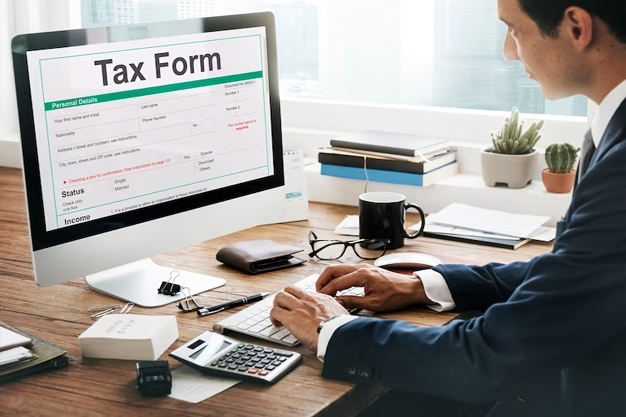GST REGISTRATION
GST REGISTRATION
The procedure of GST registration is entirely an online process and requires no manual intervention. The process of GST registration is important to avail the taxation benefits. Ri8 Solutions will help you. we specialize in providing efficient and effective GST registration services to businesses of all sizes. Our team of experts understands the complexities of the GST registration process and can help you navigate through it smoothly, so that you can focus on your business. We offer a comprehensive range of services to help you with GST registration, including:
- GST registration for new businesses
- GST registration for existing businesses
- GST migration for businesses registered under the previous tax regime
Contact us today to learn more about how we can help you with your GST registration needs. We look forward to working with you!

what is the GST Registration?
GST (Goods and Services Tax) is a value-added tax that was introduced in India in 2017. It is a comprehensive indirect tax that is levied on the supply of goods and services across the country. GST has replaced many indirect taxes like Service Tax, Value Added Tax (VAT), Central Excise Duty, etc.
If you are a business owner in India, it is mandatory to register your business under GST if your annual turnover exceeds a certain threshold limit. The threshold limit for GST registration varies for different types of businesses, and it is currently set at Rs. 40 lakhs for most businesses.

What are the Benefits of GST Registration?
However, there are also several benefits to registering for GST voluntarily. Here are some of the key benefits of GST registration:
- Legitimacy and credibility
- Input tax credit
- Compliance
- Easy expansion
- Competitive advantage
- Legal protection
What are the Eligibility Criteria for GST Registration?
In India, GST (Goods and Services Tax) registration is mandatory for businesses with an annual turnover above a certain threshold. However, there are also certain eligibility criteria that must be met for businesses to register for GST. Here are the key eligibility criteria for GST registration:
- Business type: Any business that involves the supply of goods or services in India is eligible for GST registration. This includes sole proprietorships, partnerships, private limited companies, limited liability partnerships (LLPs), and others.
- Turnover threshold: Businesses with an annual turnover above the threshold limit are required to register for GST. The threshold limit for GST registration is currently set at Rs. 40 lakhs for most businesses. However, for businesses engaged in the supply of certain goods or services, the threshold limit is lower.
- Interstate supply: Businesses that supply goods or services across different states in India are required to register for GST, regardless of their turnover.
- E-commerce operators: E-commerce operators like Amazon, Flipkart, etc. are required to register for GST, regardless of their turnover. This is because they are involved in facilitating the supply of goods or services between buyers and sellers.
- Non-resident taxable persons: Non-resident taxable persons who supply goods or services in India are required to register for GST, regardless of their turnover.
- Casual taxable persons: Casual taxable persons who supply goods or services in India but do not have a fixed place of business are required to register for GST.
- Input service distributor: Input service distributors who distribute input tax credit to their branches or units are required to register for GST.
If you are unsure about whether your business is eligible for GST registration, it is recommended to consult with Ri8 Solutions.
What Documents are Required for GST Registration?
In India, businesses are required to provide certain documents and information to register for GST (Goods and Services Tax). Here are the key documents required for GST registration:
- PAN (Permanent Account Number) of the business
- Aadhaar card of the authorized signatory
- Proof of business registration
- Business bank account details
- Proof of business address
- Photographs
- Business activities
- NOC (No Objection Certificate) from the landlord
- MOA (Memorandum of Association)
- AOA (Articles of Association)
It is important to ensure that all the documents provided for GST registration are accurate and complete. Any discrepancies or errors in the documents may lead to delays in the registration process or rejection of the application.
SERVICES
- Gst Registration
- Fssai Registration
- Msme Registration
- IE Code Registration
- Barcode Registration
- Apeda Registration
- ISO Registration
- Halal Registration
- Digital Registration
- Gst Returns
- Proprietorship Firm
- OPC Private Limited
- Partnership Company
- Private limited
- Trademark
- Trademark Renewal
- Consulting Services
- Full-time employees
- Temp-to-Perm hires
- Payroll
GET IN TOUCH
Get in touch with us today to explore how we can help you with Registrations, Company Formations, Intellectual Property Rights, and Placement Services. Our team of experts is dedicated to providing you with the best solutions to help your business grow and succeed





